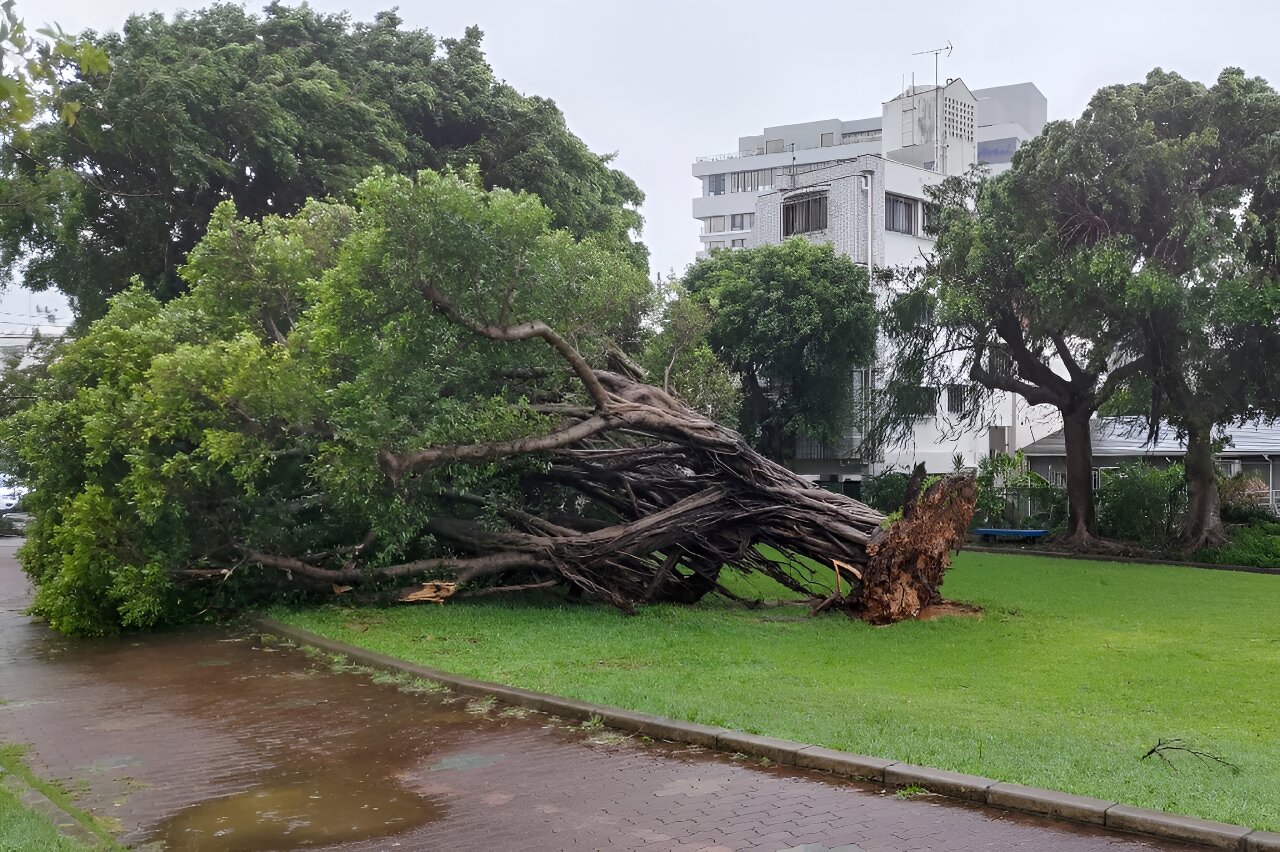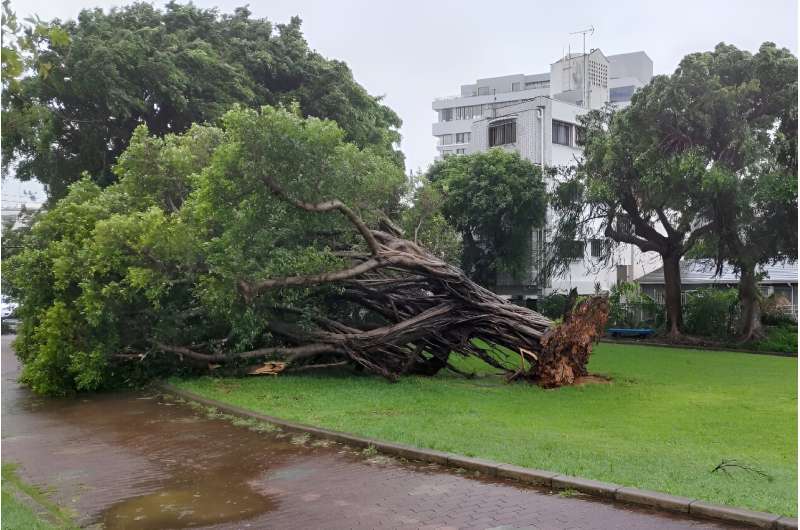

One person was reportedly killed and hundreds of thousands were without electricity in southern Japan on Wednesday as a typhoon appproached packing powerful winds and lashing rain.
Hundreds of flights to Okinawa and other islands in the area were canceled, stranding thousands of tourists holidaying in the region’s tropical beach resorts.
Typhoon Khanun, described as “very strong” by the Japanese weather agency, brought maximum sustained wind speeds of 180 kilometers (112 miles) an hour.
Okinawa’s power company said 220,580 households—nearly 35 percent of the total in the region—had no electricity early on Wednesday.
An evacuation warning issued across Okinawa and the southern part of Kagoshima region was in place, urging more than 690,000 residents to move to safety, according to the Fire and Disaster Management Agency.
The agency said a total of 11 people in Okinawa were mildly injured.
A 90-year-old man died after being trapped under a collapsed garage on Tuesday evening, public broadcaster NHK reported, adding that strong winds were probably the cause.
The Japan Meteorological Agency warned of flooding and landslides in some parts of the main island of Okinawa.
The typhoon was about 70 kilometers south of Okinawa’s remote Kumejima island at 2300 GMT and was moving west-northwest, according to the JMA.
It was expected to cross to eastern China later in the week.
More than 400 flights were canceled on Wednesday, according to NHK, affecting more than 65,000 passengers.
On Tuesday, tourists made long queues at the main Naha airport, hoping to get back home.
“We haven’t been able to secure a hotel and we don’t know when the return flight can be booked,” Minako Kawakami told local daily Okinawa Times.
© 2023 AFP
Citation:
Typhoon knocks out power in southern Japan (2023, August 2)
retrieved 2 August 2023
from https://phys.org/news/2023-08-typhoon-power-southern-japan.html
This document is subject to copyright. Apart from any fair dealing for the purpose of private study or research, no
part may be reproduced without the written permission. The content is provided for information purposes only.

